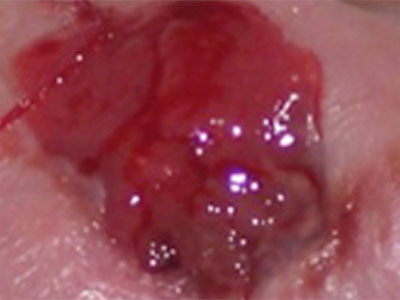Anti-Depressant Doses and Side Effects
Anti-Depressant Doses and Side Effect Comparison
| Adult Dosing | Adverse Effect Potential | |||||||||
|---|---|---|---|---|---|---|---|---|---|---|
| Starting Dose (mg) | Therapeutic dose range (mg) | Sedation | Anti-cholinergic | Insomnia/Agitation | Orthostatic Hypotension | Sexual dysfunction | Wt. gain | GI | QT c | |
| SSRIs | ||||||||||
| Citalopram | 20 | 20-40 | 0 | 0 | 1+ | 1+ | 3+ | 1+ | 1+ | 2+ |
| Escitalopram | 10 | 10-20 | 0 | 0 | 1+ | 1+ | 3+ | 1+ | 1+ | 1+ |
| Fluoxetine | 201 | 20-80 | 0 | 0 | 2+ | 1+ | 3+ | 1+ | 1+ | 1+ |
| Paroxetine | 201 | 20-50 | 1+ | 1+ | 1+ | 2+ | 4+ | 2+ | 1+ | 1+ |
| Sertraline | 50 | 25-200 | 0 | 0 | 2+ | 1+ | 3+ | 1+ | 2+ | 1+ |
| SNRIs | ||||||||||
| Duloxetine | 20 BID2 | 40-60 | 0 | 0 | 2+ | 0 | 3+ | 0 | 0 | |
| Venlafaxine ER | 75 | 75-225 | 0 | 0 | 2+ | 0 | 3+ | 0 | 2+ | 1+ |
| MISC. | ||||||||||
| Bupropion XL3 | 1501 | 300-450 | 0 | 0 | 2+ | 0 | 0 | 0 | 2+ | 1+ |
| Mirtazapine | 15 QHS | 15-45 | 4+ | 1+ | 0 | 0 | 1+ | 4+ | 1+ | |
|
1use lower doses in elderly and preferably dose in the morning; |
||||||||||
Anti-Depressant Dosing and Side Effects for Ages 12+
| Dosing for Ages 12+ | SAFETY2 | EFFICACY | ||||
|---|---|---|---|---|---|---|
| SSRI Medication | Starting Dose | Titration1 Increments (mg) | Therapeutic Dose (mg) | Maximum Dose (mg) | Side Effects3 evaluate each for drug interactions |
RCT Evidence **FDA approved |
| First-line Agents | ||||||
| Fluoxetine | 10 mg PO daily | 10-20 | 20 | 60 | Headaches, GI upset, insomnia, agitation, anxiety Note: long half-life minimizes risk of discontinuation syndrome with poor adherence | Y** |
| Second-line Agents | ||||||
| Escitalopram | 5 mg PO daily | 5 | 10-20 | 20 | Headaches, GI upset, insomnia | Y** |
| Third-line Agents | ||||||
| Citalopram | 10 mg PO daily | 10 | 20 | 40 | Headaches, GI upset, insomnia | Y |
| Sertraline | 25 mg PO daily | 12.5-25 | 100 | 200 | Headaches, GI upset | Y |
|
1Optmizing the SSRI dose: Full medication effects will not be observed until 4-6 weeks after initiation; however, some response should be observed at 2-3 weeks of a therapeutic dose. If no response at 2-3 weeks, the dose should be increased. Optimal dose is when significant improvement occurs in presenting symptoms, PHQ-9 score is <5 and side effects of medication are either absent or tolerable |
||||||















